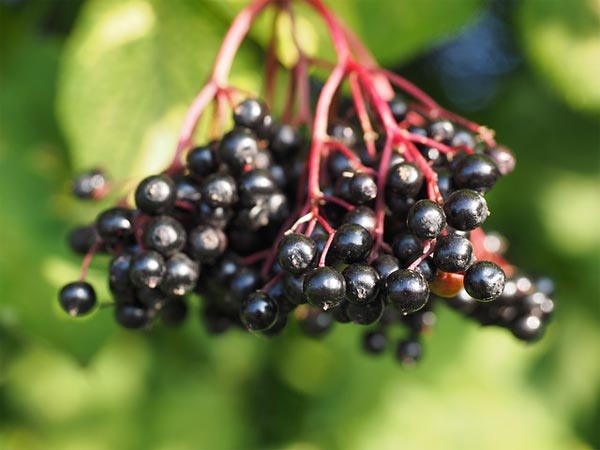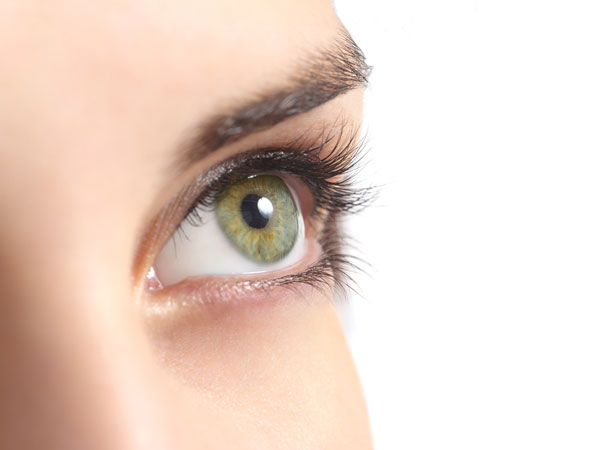Just In
- 4 hrs ago

- 5 hrs ago

- 9 hrs ago

- 12 hrs ago

Don't Miss
- Movies
 Shakti Anand And Paras Kalnawat’s Exciting One-Take Action Sequence For Kundali Bhagya
Shakti Anand And Paras Kalnawat’s Exciting One-Take Action Sequence For Kundali Bhagya - News
 BJP Slams Congress For Using Shah Rukh Khan-Lookalike For Campaigning
BJP Slams Congress For Using Shah Rukh Khan-Lookalike For Campaigning - Finance
 Wipro Q4 Results: Cons PAT Up 5% QoQ To Rs 2,834.6 Crore, Revenue Guidance Weaker Than Estimates
Wipro Q4 Results: Cons PAT Up 5% QoQ To Rs 2,834.6 Crore, Revenue Guidance Weaker Than Estimates - Sports
 KKR vs RCB: What Happened when KKR and RCB met Last Year in IPL 2023?
KKR vs RCB: What Happened when KKR and RCB met Last Year in IPL 2023? - Automobiles
 Porsche Introduces Macan EV In India, Expanding Electric Portfolio
Porsche Introduces Macan EV In India, Expanding Electric Portfolio - Education
 NLSIU Announces the Rajiv K. Luthra Foundation Grant
NLSIU Announces the Rajiv K. Luthra Foundation Grant - Technology
 Dell Introduces AI-Powered Laptops and Mobile Workstations for Enterprises in India
Dell Introduces AI-Powered Laptops and Mobile Workstations for Enterprises in India - Travel
 Journey From Delhi To Ooty: Top Transport Options And Attractions
Journey From Delhi To Ooty: Top Transport Options And Attractions
Is Consuming Elderberry Safe For Pregnant Women?
Elderberry is an umbrella term for the different species of Sambucus, the most common among them being the Sambucus Nigra or black elderberry, which finds traditional as well as contemporary uses in multifarious fields, including medicine. Even though elderberry has medicinal properties, its usage among pregnant women has been widely debated. This article attempts to explain how pregnant, expecting or lactating women can make the best use of Elderberry in a safe manner.
What Are Elderberries?
Scientifically known as the Sambucus Nigra, the elderberry is a black-coloured fruit borne on the tree of the same name. Elderberries have found a place in traditional European medicine for treating respiratory and skin problems. Over time, different civilizations have used it for various purposes including treatment of infections, improving complexion, and so on.

The unripe elderberry is green and is very astringent in nature. It also causes toxicity if consumed in the unripe state. In the ripened state, the fruit has a black (sometimes with a tint of dark purple) colour to it. Only ripe elderberries should be used for all sorts of culinary and dietary purposes. Other parts of the elderberry including its leaves, stem, roots and seeds are toxic as they contain cyanogenic glycosides harmful to the body[1] .
Nutritional Facts
Elderberries are actually rich in nutrients. About 79 to 80 per cent of an elderberry is constituted by water. This makes it an excellent choice for preparing juices, jams and jellies. According to the USDA, 100 grams of elderberries contains about 0.66 grams of protein. It also contains 7 grams of dietary fibre which aids the digestive system. Apart from that, it also contains ample vitamins (vitamin A, B6, B12, C, riboflavin, niacin, thiamin, folate), minerals (sodium, potassium, calcium, iron, magnesium, phosphorous, zinc) and very trace amounts of lipids[2] .
But what makes elderberries special is the fact that it contains flavonoids, i.e., antioxidants found in plants, which possess anti-inflammatory, antiallergic and antiviral properties and help keep the body healthy[1] [3] .
Is Elderberry Safe For Pregnant Women?
Under normal circumstances, consuming elderberries has been scientifically proven to be beneficial[1] . Its nutrient-richness and medicinal properties make it a good addition to your culinary table. Although, when you're pregnant, lactating or expecting, the scenario can be somewhat different.
During pregnancy, the body undergoes changes, which may or may not favour the effects the elderberries cause inside the body. On one hand, there haven't been enough studies supporting the fact that elderberries are safe during pregnancy. Considering the fact that the contents of elderberries include all or most vitamins and minerals a mother's body requires during pregnancy[4] , a lot of mothers have chosen to include the fruit in their diet, especially when they have a cold or flu.
There haven't been reports of extremities caused by it either. So it can be assumed that elderberries do not harm the mother or the foetus. Having said that, it's necessary to point out elderberries are known to boost the immune system. The immune systems of pregnant women may overreact during infections[5] and consuming elderberry may cause trouble.
What you can do is consult your general practitioner before consuming elderberries. They are in a better position to analyze your body during your pregnancy and provide inputs on what can be consumed and not consumed accordingly. Even if it is a commercial elderberry product like a jam or jelly, do not consume it without consulting your doctor.

Benefits Of Elderberry For Pregnant Women
If your general practitioner gave you the green signal to consume elderberries, then that's great news, because this fruit has a lot to offer. With the contents and compounds present in it, the elderberry can help you stay healthy and disease-free in a tasty manner.
1. Boosts immunity
Elderberries contain antioxidants which are required by the body to boost immunity[6] . Antioxidants have antiviral and anti-inflammatory properties which improve the function of the immune system by fighting infections, cold and flu.
2. Improves vision
Elderberries contain pigments called as anthocyanins which act as neutraceuticals, i.e., they benefit health and are known to improve vision[7] . Riboflavin and niacin are two vitamins necessary for maintaining proper vision and are present in elderberries in moderate amounts.
3. Improves heart health
Elderberries contain dietary fibre which reduces the body's bad cholesterol, thereby preventing common problems associated with it (including atherosclerosis and high blood pressure) and improving heart health[8] .
4. Improves bone health
The antioxidants present in elderberries not just prevent infections, but they also help strengthen bones and joints[9] . Their anti-inflammatory properties help manage joint pain as well. Moreover, the berries also contain calcium which promotes bone growth and health.
5. Improves respiratory health
The flavonoids present in elderberries have been known to ease respiratory tract inflammation and irritation, along with clearing mucous or phlegm, thereby improving respiratory health[10] . This is the reason some pregnant women choose to consume elderberries during a flu, cold, etc.

In What Forms Can Pregnant Women Consume Elderberries?
No matter what, please avoid consuming unripe or uncooked elderberries at all costs, especially when you're pregnant. Consult the doctor beforehand. Elderberries can be consumed in more ways than one, and each one of them is as interesting and as it is tasty.
1. Syrup
This ought to be the most common and convenient method of consuming elderberries. Elderberry syrup can be easily prepared at home or they can also be bought from the market. While you're pregnant, it would be best to prepare the syrup at home rather than consume commercial ones, just to be on the safe side. Yet, if your doctor advises and prescribes you one, you can go for it.
2. Juice
Only use freshly prepared elderberry juice which tastes sweet and tangy. Again, if you can prepare the juice at home, it would be better over buying and using commercial products as commercial ones may just contain added sugars or contents unfit for your pregnancy.
3. Tea
For those of us who like beverages, a soothing elderberry tea is a way to go. You can buy elderberry teabags from the market or you can make some at home by mixing a tablespoon of dried elderberries with 240 ml water.
4. Jam or jelly
Elderberries can also be consumed in the form of jam or jellies, wherein, they can be combined with other foods like bread, pancakes, salads, etc. Although, it can be a little difficult to find commercial elderberry jams. However, the jams and jellies can also be prepared at home with little effort.
How Much Elderberry Can Be Consumed?
It depends on what form you're consuming the elderberries in. If you're using the syrup, then a spoonful of refrigerated syrup along with water can be used. If you're consuming juice, then 240 ml or less twice for five days would be suggested[11] . There is no specific scientifically prescribed dosage regarding consumption of elderberries by pregnant women. That's why ensuring that you eat only as much as your doctor has allowed you to.
Are There Any Side Effects?
The fact of the matter is that there is close to no evidence supporting or opposing the use of elderberries in pregnant women. Hence, the usual side effects may or may not show up, they may or may not intensify. Unripe and uncooked elderberries are definitely red flags that need to be avoided. This is because uncooked elderberries have sometimes resulted in nausea, vomiting and diarrhoea.
If you're someone who suffers from any condition or auto-immune diseases, kindly avoid elderberries so as not to worsen the symptoms of the condition. Again, only go by what the doctor says and if you notice any side effects, immediately rush to the hospital and get it checked.
- [1] Tiralongo, E., Wee, S., & Lea, R. (2016). Elderberry Supplementation Reduces Cold Duration and Symptoms in Air-Travellers: A Randomized, Double-Blind Placebo-Controlled Clinical Trial. Nutrients, 8(4), 182.
- [2] United States Department of Agriculture Agricultural Research Service. Elderberries.
- [3] Panche, A. N., Diwan, A. D., & Chandra, S. R. (2016). Flavonoids: an overview. Journal of Nutritional Science, 5.
- [4] Khayat, S., Fanaei, H., & Ghanbarzehi, A. (2017). Minerals in Pregnancy and Lactation: A Review Article.Journal of clinical and diagnostic research: JCDR,11(9), QE01-QE05.
- [5] Kourtis, A. P., Read, J. S., & Jamieson, D. J. (2014). Pregnancy and Infection. New England Journal of Medicine, 370(23), 2211–2218.
- [6] Ho, G., Wangensteen, H., & Barsett, H. (2017). Elderberry and Elderflower Extracts, Phenolic Compounds, and Metabolites and Their Effect on Complement, RAW 264.7 Macrophages and Dendritic Cells. International Journal of Molecular Sciences, 18(3), 584.
- [7] Khoo, H. E., Azlan, A., Tang, S. T., & Lim, S. M. (2017). Anthocyanidins and anthocyanins: colored pigments as food, pharmaceutical ingredients, and the potential health benefits. Food & Nutrition Research, 61(1), 1361779.
- [8] McRae, M. P. (2017). Dietary Fiber Is Beneficial for the Prevention of Cardiovascular Disease: An Umbrella Review of Meta-analyses. Journal of Chiropractic Medicine, 16(4), 289–299.
- [9] Badescu, L., Badulescu, O., Badescu, M., & Ciocoiu, M. (2012). Mechanism by Sambucus nigraExtract Improves Bone Mineral Density in Experimental Diabetes. Evidence-Based Complementary and Alternative Medicine, 2012, 1–6.
- [10] Somerville, V. S., Braakhuis, A. J., & Hopkins, W. G. (2016). Effect of Flavonoids on Upper Respiratory Tract Infections and Immune Function: A Systematic Review and Meta-Analysis. Advances in Nutrition, 7(3), 488–497.
- [11] The Americal Botanical Council. The ABC Clinical Guide To Elderberry.
-
 diet fitnessDoes CLA (Conjugated Linoleic Acid) Aid Weight Loss?
diet fitnessDoes CLA (Conjugated Linoleic Acid) Aid Weight Loss? -
 healthSolar Eclipse 2024: Dos and Don'ts for Pregnant Women During Surya Grahan
healthSolar Eclipse 2024: Dos and Don'ts for Pregnant Women During Surya Grahan -
 healthLunar Eclipse 2024: Dos And Don'ts For Pregnant Woman During Chandra Grahan
healthLunar Eclipse 2024: Dos And Don'ts For Pregnant Woman During Chandra Grahan -
 fashionDeepika Padukone-Ranveer Singh Announce Pregnancy: 6 Maternity Outfit Ideas For The Modern Mom-to-Be
fashionDeepika Padukone-Ranveer Singh Announce Pregnancy: 6 Maternity Outfit Ideas For The Modern Mom-to-Be -
 healthLate Singer Sidhu Moose Wala's Mother Is Pregnant Through IVF, Know What It Is And How To Prepare For It
healthLate Singer Sidhu Moose Wala's Mother Is Pregnant Through IVF, Know What It Is And How To Prepare For It -
 insyncVirat Kohli And Anushka Sharma Name Their Baby Boy 'Akaay', Know What This Beautiful Name Means?
insyncVirat Kohli And Anushka Sharma Name Their Baby Boy 'Akaay', Know What This Beautiful Name Means? -
 pregnancy parentingMaternal Health Awareness Day 2024: 15 Foods That Boost Maternal Health
pregnancy parentingMaternal Health Awareness Day 2024: 15 Foods That Boost Maternal Health -
 pregnancy parentingFrom Contractions To Water Breaking: Knowing When It's Time For The Hospital During Pregnancy
pregnancy parentingFrom Contractions To Water Breaking: Knowing When It's Time For The Hospital During Pregnancy -
 pregnancy parentingBirth Control Pills Can Affect This Primary Function In Women: Find Out What
pregnancy parentingBirth Control Pills Can Affect This Primary Function In Women: Find Out What -
 pregnancy parentingTwo Wombs, Four Hearts: US Mom's Extraordinary Double Uterus Pregnancy
pregnancy parentingTwo Wombs, Four Hearts: US Mom's Extraordinary Double Uterus Pregnancy -
 healthExclusive: A Pregnant Mom Can Posses These Maternal, Fetal Health Risks If Exposed To Air Pollution
healthExclusive: A Pregnant Mom Can Posses These Maternal, Fetal Health Risks If Exposed To Air Pollution -
 pregnancy parentingDelhi Air Pollution: Pregnant Women Must Follow These 4 Things!
pregnancy parentingDelhi Air Pollution: Pregnant Women Must Follow These 4 Things!


 Click it and Unblock the Notifications
Click it and Unblock the Notifications



